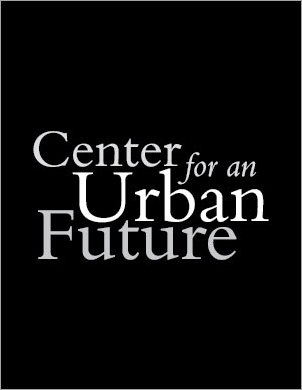
Testimony - November 2003
City Zoning Decisions Further Harm NYC Manufacturers
CUF Research Director Jonathan Bowles addresses City Council on recent city zoning decisions and the impact on city businesses.
by Jonathan Bowles
Good afternoon. Thank you for inviting me to testify today. My name is Jonathan Bowles and I am the research director of the Center for an Urban Future, a policy think tank that has issued a number of studies on economic development and job creation strategies in New York City.
I’m not here today to convince you that manufacturing is the answer to the city’s economic problems or that it will be one of New York’s leading growth industries in the future. But I do strongly believe that with better public policies, the city could be doing a much better job of retaining manufacturers, enabling existing industrial firms to grow within the five boroughs and cultivating new start-ups in niche areas ranging from ethnic food production to high-end furniture making.
Make no mistake; the manufacturing sector has suffered significant job losses nationwide as companies have increasingly shifted production to less expensive factories overseas. But few cities have fared as badly as New York. As part of research I did for a report the Center for an Urban Future released in September about the city’s economic future—-titled “Engine Failure"—-I found that nationally, manufacturing jobs declined by 3 percent during the 1990s, but in New York the sector declined by 33 percent. Meanwhile, jobs in wholesale trade, another key industrial sector, grew by 13 percent nationally between 1990 and 2000. But in New York, wholesale trade jobs declined by 15 percent during the same period.
The city is also increasingly losing industrial companies that still want–-or need--to be located close to the Manhattan marketplace. In 1997, the city accounted for 84 percent of all the manufacturing jobs in the region (the NY PMSA). Just five years later, the city made up only 80 percent of all manufacturing jobs in the region.
New York can no longer afford to write off industries like manufacturing and wholesale trade. As I detailed in the “Engine Failure” report, New York is facing serious long-term structural economic challenges that could inhibit future employment growth. It’s not just that New York has become too reliant on Wall Street. We have. The bigger issue is that companies in once reliable industries like finance, insurance and even high-end service sectors like advertising and publishing, are increasingly shifting jobs out of New York or opting to create the bulk of their new jobs outside of the city. These trends have been occurring for several years, were amplified by 9/11, and are likely to continue to impact future job growth in the city for years to come.
Manufacturing and wholesale trade need to be one part of a new, more comprehensive economic development strategy—-one that seeks to diversify the local economy, create a better climate for entrepreneurs and growing firms, tap natural assets like the city’s growing immigrant population, and use more of the city’s geography.
Fortunately, these days EDC seems to be genuinely interested in paying more attention to the city’s industrial firms. That’s a huge start.
But incentive deals like the one announced last week for Gelmart Industries are not the answer to the problems now facing industrial businesses across the city. The high-cost of real estate, mostly due to speculative owners looking to convert factories into more profitable housing, is the number one, two and three issue facing manufacturers today. This is an issue that is not going to be fixed by city incentives geared towards businesses that buy property—-primarily because a huge percentage of the city’s industrial businesses are small and cannot afford to own their own buildings.
The current crisis facing the city’s manufacturers can’t be solved without addressing the land use and zoning issues that are at the heart of the problem. In other words, the City Planning Commission needs to put in place stronger zoning protections for industrial businesses in a handful of areas, so that businesses will be protected from speculative real estate increases and have the piece of mind to sign long-term leases and re-invest in their company’s growth.
Unfortunately, the City Planning Commission and its staff at the Department of City Planning continue to have little understanding of the severe obstacles facing New York’s industrial businesses, and even less interest in working to solve these problems. In numerous instances, they are now pushing for the rezoning of manufacturing zones to allow for new residential development. Some of these rezoning initiatives deserve support, as a way to create much needed affordable housing, but City Planning has stubbornly refused to consider proposals for simultaneously strengthening other areas where there are strong concentrations of industrial businesses. These proposals deserve support as well, and other cities, like Chicago, have used these zoning tools—-such as the creation of Planned Manufacturing Districts—-with success.